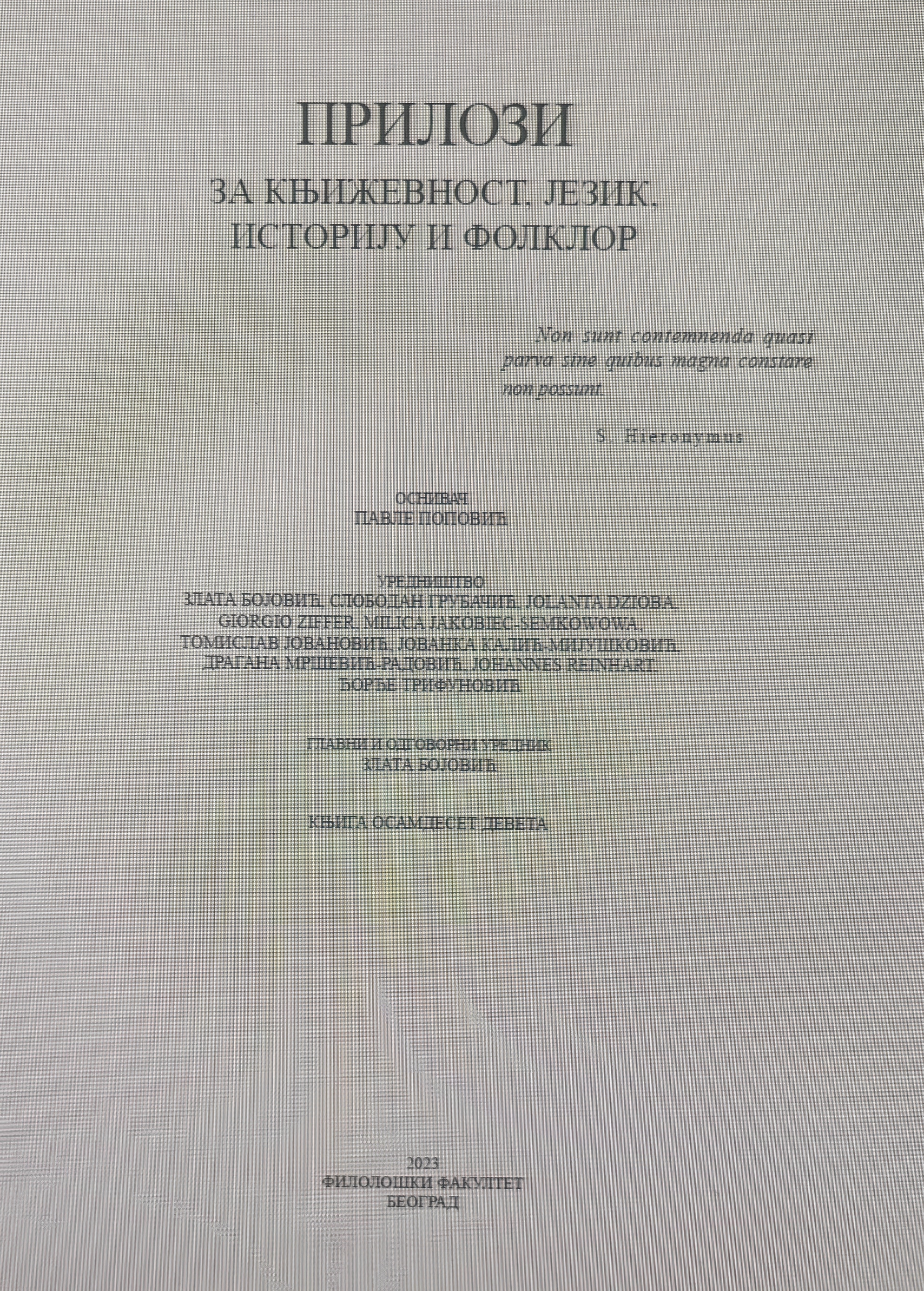ТУРЦИЗМИ СА ЗНАЧЕЊЕМ ТИТУЛЕ, ЗВАЊА ИЛИ ЧИНА КАО КОМПОНЕНТЕ ПОСЛОВИЦА И ИЗРЕКА У СРПСКОМ ЈЕЗИКУ
Abstract
TURKISMS WITH THE MEANING OF TITLE, VOCATION OR RANK
AS COMPONENTS OF PROVERBS AND SAYINGS
IN THE SERBIAN LANGUAGE
The paper concerns analyses of proverbs and sayings in the Serbian language which in their component composition contain turkisms that name titles, vocations and ranks from the period of the Ottoman Empire, such as aga (agha), везир (counselor, vezir), kadija (judge, kadi), paša (pasha), čelebija (cultured, urbane), dizdar (guard, warden).
Paremiological units (proverbs and sayings) that contain such lexemes are often obsolete themselves and belong to the category of paremiological archaisms. Analyzed turkisms appear in proverbs in their basic, terminological meanings, but also in secondary meanings that contain semantic components that are the result of collective expression, judgment, opinion etc.
The analysis showed that not all of the paremies are obsolete, some are used in vernacular speech, journalistic and literary style as clear conveyers of lessons or qualifications, such as kadija te tuži, kadija ti sudi (kadi sues you, kadi judges you).

